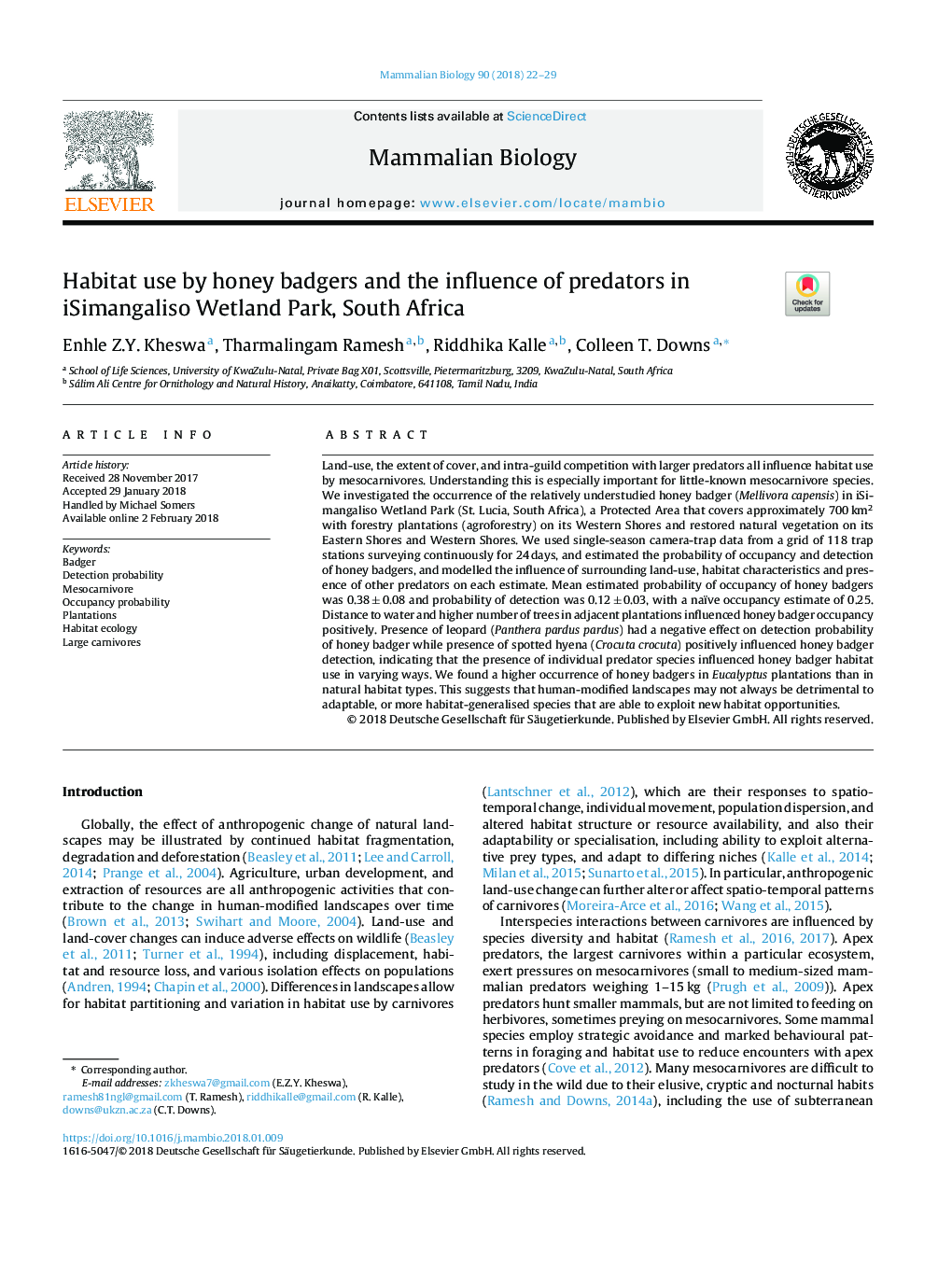| Article ID | Journal | Published Year | Pages | File Type |
|---|---|---|---|---|
| 8475623 | Mammalian Biology - Zeitschrift für Säugetierkunde | 2018 | 8 Pages |
Abstract
Land-use, the extent of cover, and intra-guild competition with larger predators all influence habitat use by mesocarnivores. Understanding this is especially important for little-known mesocarnivore species. We investigated the occurrence of the relatively understudied honey badger (Mellivora capensis) in iSimangaliso Wetland Park (St. Lucia, South Africa), a Protected Area that covers approximately 700â¯km2 with forestry plantations (agroforestry) on its Western Shores and restored natural vegetation on its Eastern Shores and Western Shores. We used single-season camera-trap data from a grid of 118 trap stations surveying continuously for 24â¯days, and estimated the probability of occupancy and detection of honey badgers, and modelled the influence of surrounding land-use, habitat characteristics and presence of other predators on each estimate. Mean estimated probability of occupancy of honey badgers was 0.38â¯Â±â¯0.08 and probability of detection was 0.12â¯Â±â¯0.03, with a naïve occupancy estimate of 0.25. Distance to water and higher number of trees in adjacent plantations influenced honey badger occupancy positively. Presence of leopard (Panthera pardus pardus) had a negative effect on detection probability of honey badger while presence of spotted hyena (Crocuta crocuta) positively influenced honey badger detection, indicating that the presence of individual predator species influenced honey badger habitat use in varying ways. We found a higher occurrence of honey badgers in Eucalyptus plantations than in natural habitat types. This suggests that human-modified landscapes may not always be detrimental to adaptable, or more habitat-generalised species that are able to exploit new habitat opportunities.
Related Topics
Life Sciences
Agricultural and Biological Sciences
Animal Science and Zoology
Authors
Enhle Z.Y. Kheswa, Tharmalingam Ramesh, Riddhika Kalle, Colleen T. Downs,
